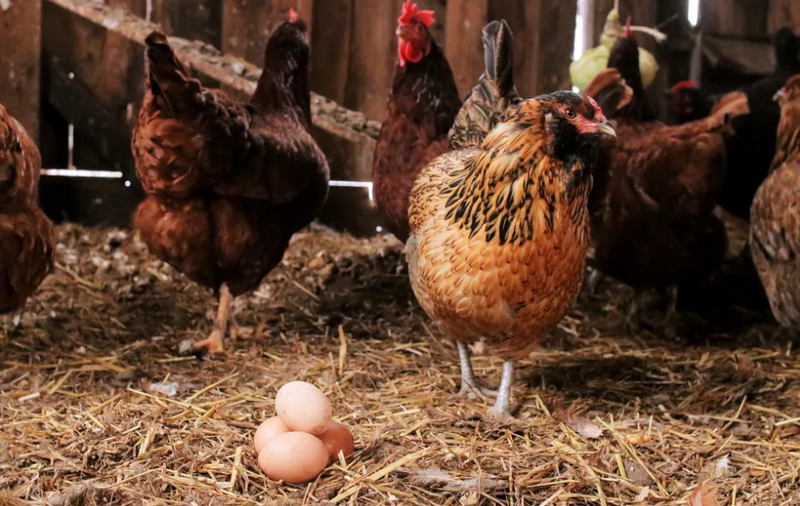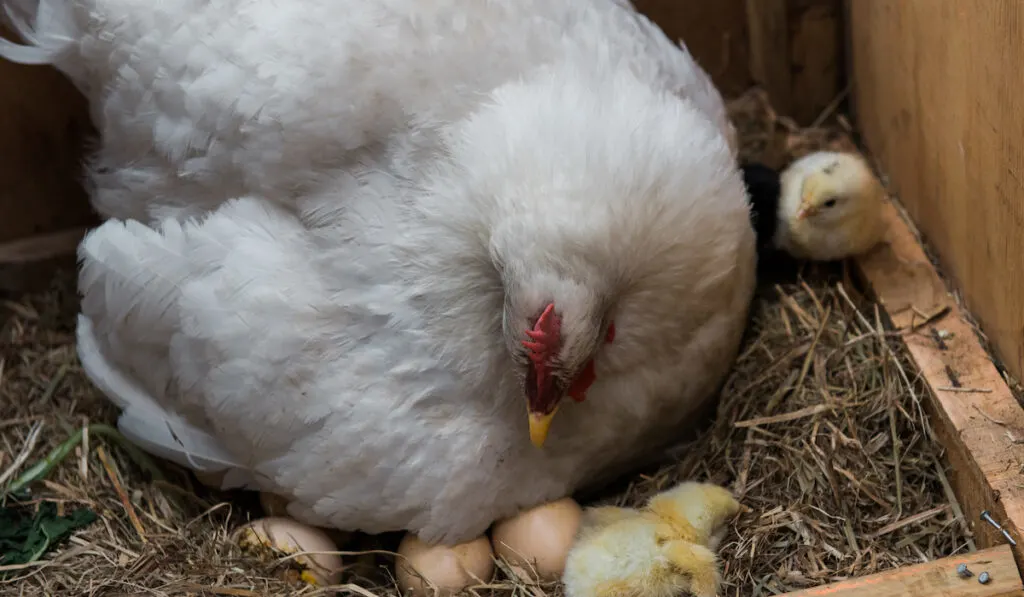Hey there, fellow farm enthusiasts or just plain curious minds! So, here we are diving deep into the world of poultry and cracking open one of the most common questions buzzing around: do hens produce eggs without a rooster? If you're scratching your head or wondering why this even matters, buckle up because we're about to explore some pretty cool stuff. Whether you're planning to set up your own backyard coop or just want to impress your friends with some farm trivia, this guide's got you covered.
Now, before we dive into the nitty-gritty, let's get one thing straight: eggs are not just for breakfast anymore. They're a powerhouse of nutrition, and understanding how they come to be is kinda fascinating. Hens, those awesome feathered ladies, play a crucial role in the egg game, but do they need a rooster to do their thing? Spoiler alert: not always. Stick around and we'll break it down for ya.
Here's the deal: this guide isn't just about answering yes or no. It's about diving deep into the science, biology, and even a little bit of farm management tips. By the end of this, you'll be an egg expert, ready to answer any question that comes your way. So, are you ready to get your hands dirty—or at least your mind? Let's go!
Table of Contents:
- The Biological Process Behind Egg Production
- The Role of a Rooster in Egg Production
- Fertilized vs. Unfertilized Eggs: What's the Difference?
- Understanding the Egg-Laying Cycle
- Factors Affecting Egg-Laying
- Choosing the Right Hens for Your Coop
- Management Tips for Optimal Egg Production
- Common Myths About Hens and Eggs
- Sustainability in Egg Production
- Wrapping It Up
The Biological Process Behind Egg Production
Alright, let's talk science for a sec. Egg production in hens is a pretty amazing biological process that happens whether there's a rooster around or not. Here's how it works: inside a hen's body, there's an ovary that produces ova, or egg yolks. When the yolk matures, it gets released into the oviduct, which is kinda like the assembly line for egg production.
As the yolk moves through the oviduct, it gets wrapped up in layers of egg white, membranes, and finally the shell. This whole process takes about 24 to 26 hours, and voila, you've got an egg ready to pop out. No rooster required for this part of the show. But here's the kicker: if a rooster's been hangin' around, things can get a little more complicated.
How the Oviduct Works
Think of the oviduct as a production line with different stations. First stop is the magnum, where the egg white gets added. Next up is the isthmus, where the inner and outer membranes are formed. Then it's off to the shell gland, where the shell gets put on. Finally, the egg gets a little pigment touch-up before it's laid. Cool, right?
The Role of a Rooster in Egg Production
So, what's the deal with roosters? Well, here's the thing: roosters don't have much to do with egg production unless you're talking about fertilization. If you've got a rooster in the mix, there's a chance that some of the eggs your hens lay will be fertilized. This means that if those eggs are incubated under the right conditions, they could turn into chicks. But if you're just looking for eggs to eat, a rooster's not really necessary.
In fact, having a rooster around can sometimes be more trouble than it's worth. They can be noisy, aggressive, and let's be honest, a little bit of a handful. Plus, if you're living in an urban or suburban area, roosters might not even be allowed due to noise ordinances. So, unless you're planning on hatching chicks, you might want to skip the rooster altogether.
Do You Need a Rooster for Eggs?
Short answer: nope. Hens will lay eggs whether there's a rooster around or not. The only difference is that without a rooster, the eggs won't be fertilized. But hey, if you're just looking for some fresh eggs for breakfast, unfertilized eggs are just fine. In fact, they're often preferred because they're easier to store and don't have the potential to turn into chicks.
Fertilized vs. Unfertilized Eggs: What's the Difference?
Now, let's talk about the big difference between fertilized and unfertilized eggs. Unfertilized eggs are the ones you're probably most familiar with. They're laid by hens that haven't mated with a rooster, and they're perfectly safe to eat. In fact, most of the eggs you buy at the grocery store are unfertilized.
Fertilized eggs, on the other hand, have the potential to develop into chicks if they're incubated properly. This means they need to be kept at the right temperature and humidity for about 21 days. If you're not planning on hatching chicks, fertilized eggs are still perfectly edible, but they might have a slightly different texture and taste.
How to Tell if an Egg is Fertilized
Here's the thing: unless you crack the egg open, it's pretty hard to tell if it's fertilized or not. Some people claim they can see a little white spot on the yolk, but honestly, that's not always reliable. If you're really curious, you can try candling the egg, which involves shining a light through it to see what's inside. But for most people, it's not really worth the trouble.
Understanding the Egg-Laying Cycle
Alright, let's talk about the egg-laying cycle. Most hens will start laying eggs when they're around 18 to 20 weeks old, and they'll lay about one egg every 24 to 26 hours. But here's the thing: not all hens are created equal. Some breeds are better layers than others, and factors like age, diet, and environment can all affect how many eggs a hen lays.
As hens get older, their egg production tends to slow down. This is totally normal, and it doesn't mean they're not still awesome hens. In fact, older hens often lay fewer but larger eggs, which can be a good thing if you're looking for bigger breakfasts.
Factors Affecting Egg Size and Quality
There are a few things that can affect the size and quality of the eggs your hens lay. Diet is a big one—hens need a balanced diet with plenty of protein and calcium to lay strong, healthy eggs. Lighting is another factor—hens need about 14 to 16 hours of light a day to keep laying regularly. And of course, stress can also affect egg production, so it's important to keep your hens happy and healthy.
Factors Affecting Egg-Laying
Let's dive a little deeper into the factors that can affect egg-laying. As we mentioned before, diet, lighting, and stress are all big players, but there are a few other things to consider too. Temperature can have a big impact—hens don't lay as well in extreme heat or cold. And then there's genetics—some breeds are just better layers than others.
If you're noticing a drop in egg production, it might be worth investigating to see if one of these factors is at play. Sometimes it's as simple as adjusting the lighting or making sure your hens have access to plenty of fresh water. But if you're still stumped, it might be time to consult with a poultry expert.
Tips for Boosting Egg Production
Here are a few quick tips for boosting egg production in your flock:
- Make sure your hens have a balanced diet with plenty of protein and calcium.
- Provide about 14 to 16 hours of light a day.
- Keep your hens cool in the summer and warm in the winter.
- Minimize stress by providing a safe, clean environment.
- Choose breeds that are known for their egg-laying abilities.
Choosing the Right Hens for Your Coop
Picking the right hens for your coop is kinda like picking the right team for a project. You want hens that are gonna work well together and produce lots of eggs. Some popular egg-laying breeds include White Leghorns, Rhode Island Reds, and Plymouth Rocks. Each breed has its own strengths and weaknesses, so it's important to do your research before you commit.
When you're choosing hens, consider things like temperament, egg-laying ability, and adaptability to your local climate. Some hens are better suited to cold weather, while others do better in the heat. And if you're planning on keeping your hens in a backyard coop, you might want to choose breeds that are a little quieter and less likely to cause a ruckus with the neighbors.
Popular Egg-Laying Breeds
Here's a quick rundown of some popular egg-laying breeds:
- White Leghorns: Known for their high egg production, these hens are great for beginners.
- Rhode Island Reds: Hardy and adaptable, these hens lay plenty of eggs and are good foragers.
- Plymouth Rocks: Friendly and docile, these hens are great for families with kids.
Management Tips for Optimal Egg Production
Managing your flock for optimal egg production involves a little bit of planning and a lot of TLC. Here are a few tips to help you keep your hens happy and productive:
- Provide plenty of space for your hens to move around and scratch.
- Keep the coop clean and free of pests.
- Make sure your hens have access to fresh water and food at all times.
- Check for signs of illness or stress and address them promptly.
- Rotate your flock regularly to keep egg production high.
By following these tips, you'll be well on your way to having a happy, healthy flock of egg-laying hens.
Common Myths About Hens and Eggs
There are a few common myths floating around about hens and eggs, and it's time to set the record straight. One big myth is that hens need a rooster to lay eggs. As we've already discussed, that's not true. Another myth is that brown eggs are healthier than white eggs. Nope, the color of the shell doesn't affect the nutritional value of the egg.
And then there's the myth that hens only lay eggs in the morning. While it's true that most hens lay their eggs in the morning, some hens are night owls and lay their eggs in the afternoon or even at night. So, don't be surprised if you find an egg in the coop later in the day.
Separating Fact from Fiction
Here's a quick myth-busting guide:
- Myth: Hens need a rooster to lay eggs. Fact: Nope, they don't.
- Myth: Brown eggs are healthier than white eggs. Fact: Shell color doesn't affect nutritional value.
- Myth: Hens only lay eggs in the morning. Fact: Some hens lay eggs at different times of the day.
Sustainability in Egg Production
As more people become interested in sustainable living, egg production is becoming a hot topic. Raising your own hens is a great way to ensure that the eggs you eat are fresh, healthy, and ethically sourced. Plus, it's a fun and rewarding hobby that can bring you closer to nature.


